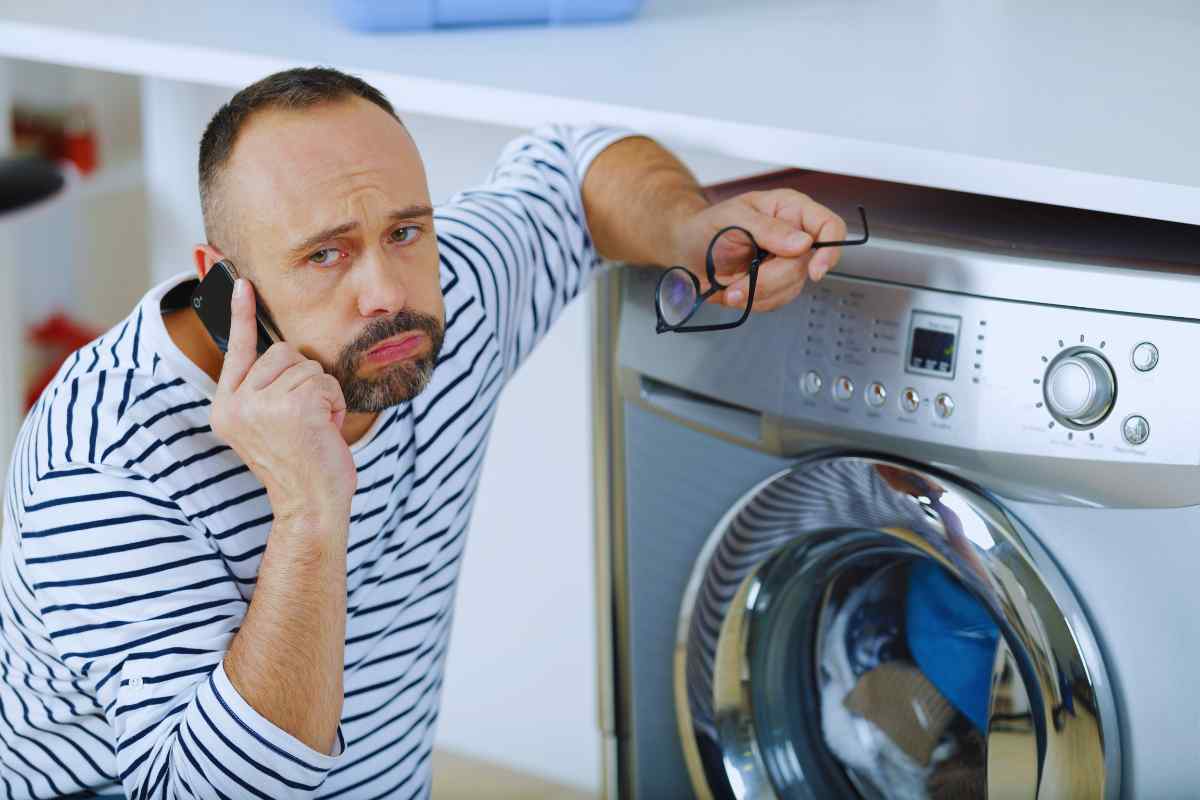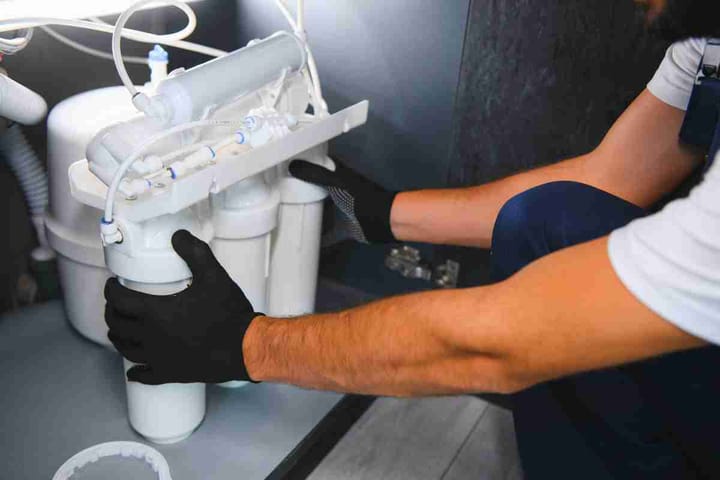A Homeowner's Guide to Appliance Care and Repairs
Home appliances, like refrigerators and washing machines, simplify daily chores. This guide offers tips for proper care and maintenance to ensure longevity.

Home appliances are integral to modern living, providing convenience and efficiency in managing daily chores. From refrigerators to washing machines, these devices simplify our lives but require proper care and maintenance to ensure their longevity and optimal performance. This comprehensive guide aims to equip homeowners with the knowledge needed to care for and repair their appliances, covering various sub-topics in detail to address all potential questions and concerns.
Understanding Your Home Appliances
Home appliances can be broadly categorized into major and minor appliances. Major appliances include items such as refrigerators, washing machines, dryers, ovens, and dishwashers, which are essential for day-to-day functioning and typically involve significant investment. Minor appliances, on the other hand, include smaller, often portable items such as microwaves, coffee makers, blenders, and toasters.
Understanding the key components is crucial for diagnosing issues, performing maintenance, and sourcing the right spare parts for your home appliances. For example, a refrigerator's main components include the compressor, condenser, evaporator, and thermostat. The compressor circulates refrigerant through the system, while the condenser and evaporator coils facilitate the heat exchange process necessary for cooling.
The thermostat regulates the temperature inside the refrigerator. In washing machines, important components include the drum, agitator, pump, and water inlet valve. The drum holds the laundry, while the agitator helps to clean it by moving the clothes around. The pump drains the water, and the water inlet valve controls the flow of water into the machine. Understanding these parts can help in identifying problems and knowing what to check when something goes wrong.
Routine Maintenance for Longevity
Regular maintenance is vital to keep your appliances running smoothly and to prevent common problems. Each type of appliance requires specific care and maintenance routines. For refrigerators, it is essential to clean the coils every six months to ensure efficient operation. Dirty coils can cause the compressor to work harder, leading to potential breakdowns. Checking and replacing door seals if they become worn or damaged is also important to maintain the appliance's efficiency. Periodically defrosting the freezer section helps to prevent ice buildup, which can affect performance.
Washing machines benefit from running an empty cycle with vinegar once a month to remove soap scum and mold buildup. This simple step can prevent odors and maintain the machine's efficiency. Additionally, it is crucial to clean the lint filter after every use to ensure proper drainage and avoid clogging issues. Dishwashers require monthly cleaning of the filter and spray arms to maintain optimal performance. Running a cycle with vinegar can also help remove buildup from the interior surfaces. For ovens, regular cleaning of the interior is necessary to prevent grease and food residue from affecting the appliance's operation. Checking the door seals for wear and tear ensures that the oven maintains its temperature properly.
Using appliances correctly is equally important in extending their lifespan. Overloading washing machines and dishwashers can strain the motors and other components, leading to premature wear. Using appropriate detergents and cleaners as recommended by the manufacturer helps prevent damage to the appliance parts. Adhering to the manufacturer’s guidelines for usage and maintenance ensures that the appliances operate efficiently and last longer.
Troubleshooting Common Problems
When an appliance malfunctions, the first step is to diagnose the issue. Understanding common problems and their potential causes can save time and money. For refrigerators, a common issue is not cooling properly. This problem can be caused by dirty coils, a faulty thermostat, or blocked vents. Cleaning the coils and ensuring proper ventilation around the refrigerator can often resolve the issue. If the problem persists, checking the thermostat and replacing it if necessary might be the next step.
In washing machines, one of the most common issues is the machine not spinning. This can be due to a faulty lid switch, a broken drive belt, or a malfunctioning motor. Checking these components and replacing any defective parts can restore the machine's functionality. Poor cleaning performance in dishwashers might result from clogged spray arms, a malfunctioning pump, or the use of incorrect detergent. Clearing the spray arms and ensuring the pump is working correctly can improve the dishwasher’s performance.
Some repairs can be performed without professional help, provided you have the necessary tools and follow safety guidelines. For instance, replacing the door seals or thermostats in refrigerators can be done with basic tools. In washing machines, replacing the drive belt or lid switch is relatively straightforward and can save the cost of a professional repair. For dishwashers, clearing blockages in the spray arms or filters can restore performance and is a task that most homeowners can handle themselves.
When to Call a Professional
While many repairs can be managed at home, some issues require professional expertise. Identifying complex problems and knowing when to seek professional help is crucial to avoid further damage to the appliance. Issues involving electrical components, gas lines, or sealed systems should not be tackled by amateurs due to the potential risks involved. For example, in refrigerators, problems with the compressor or refrigerant leaks need to be addressed by a trained technician to ensure safety and proper repair.

Washing machines with motor or transmission problems are best left to professionals, as these components are complex and require specialized knowledge to repair. Similarly, ovens with malfunctions in the control board or heating elements often need expert repair to ensure the appliance operates safely and efficiently.
Choosing the right repair service is essential to ensure quality repairs. Look for licensed and insured technicians with good reviews from previous customers. Ask for quotes and inquire about warranties on their work to protect yourself from future issues. Some companies offer maintenance plans that include regular check-ups and minor repairs, which can save money and extend the lifespan of your appliances.
Finding Spare Parts and Enhancements
Finding the right spare parts for your home appliances is essential for successful DIY repairs. Manufacturer websites are a reliable source for genuine parts, ensuring compatibility and quality. Authorized dealers also provide certified parts that meet the manufacturer’s specifications. Online retailers such as Amazon and eBay offer a wide range of parts, but it is important to verify the compatibility and authenticity of these parts before purchasing.
Upgrading certain components can also improve the performance and efficiency of your appliances. For example, refrigerators with energy-efficient compressors can save on electricity costs and reduce the appliance's environmental impact. In washing machines, high-efficiency water inlet valves can decrease water usage and enhance cleaning performance. Installing better insulation in ovens can improve energy efficiency and reduce cooking times, making your appliance more effective and economical.
Extending Appliance Lifespan with Preventative Care
Regular check-ups are vital to catch potential problems early and prevent costly repairs. Scheduling annual inspections for major appliances allows for early detection of issues that might otherwise go unnoticed. This proactive approach can significantly extend the lifespan of your appliances and ensure they operate efficiently.
Improving the energy efficiency of your appliances not only saves money but also reduces wear and tear. Keeping refrigerators away from heat sources and ensuring proper ventilation can help them operate more efficiently. Using cold water cycles in washing machines whenever possible can reduce energy consumption and avoid overloading the machine, which can strain the motor and other components. Running dishwashers with full loads and using eco-friendly settings can minimize energy use and maintain optimal performance.
Adopting sustainable practices also contributes to the longevity of your appliances. Using natural cleaning products instead of harsh chemicals can prevent buildup and damage to the appliance components. Properly recycling old appliances when replacing them reduces environmental impact and promotes sustainable living.
Conclusion
Caring for your home appliances involves a combination of regular maintenance, proper usage, and timely repairs. Understanding the components and functions of your appliances helps in diagnosing issues and deciding when to seek professional help. By sourcing genuine spare parts for your home appliances and following energy-efficient practices, you can extend their lifespan and improve their performance. Investing time and effort in appliance care not only ensures they serve you well but also contributes to a more sustainable and efficient household.
In summary, maintaining your appliances involves understanding their key components, performing regular maintenance, troubleshooting common problems, knowing when to call a professional, and finding the right spare parts for DIY repairs. Following these guidelines will help you keep your appliances in good working order, saving you time, money, and effort in the long run. By adopting these practices, you can enjoy the convenience and efficiency of your home appliances for many years to come.




Comments ()